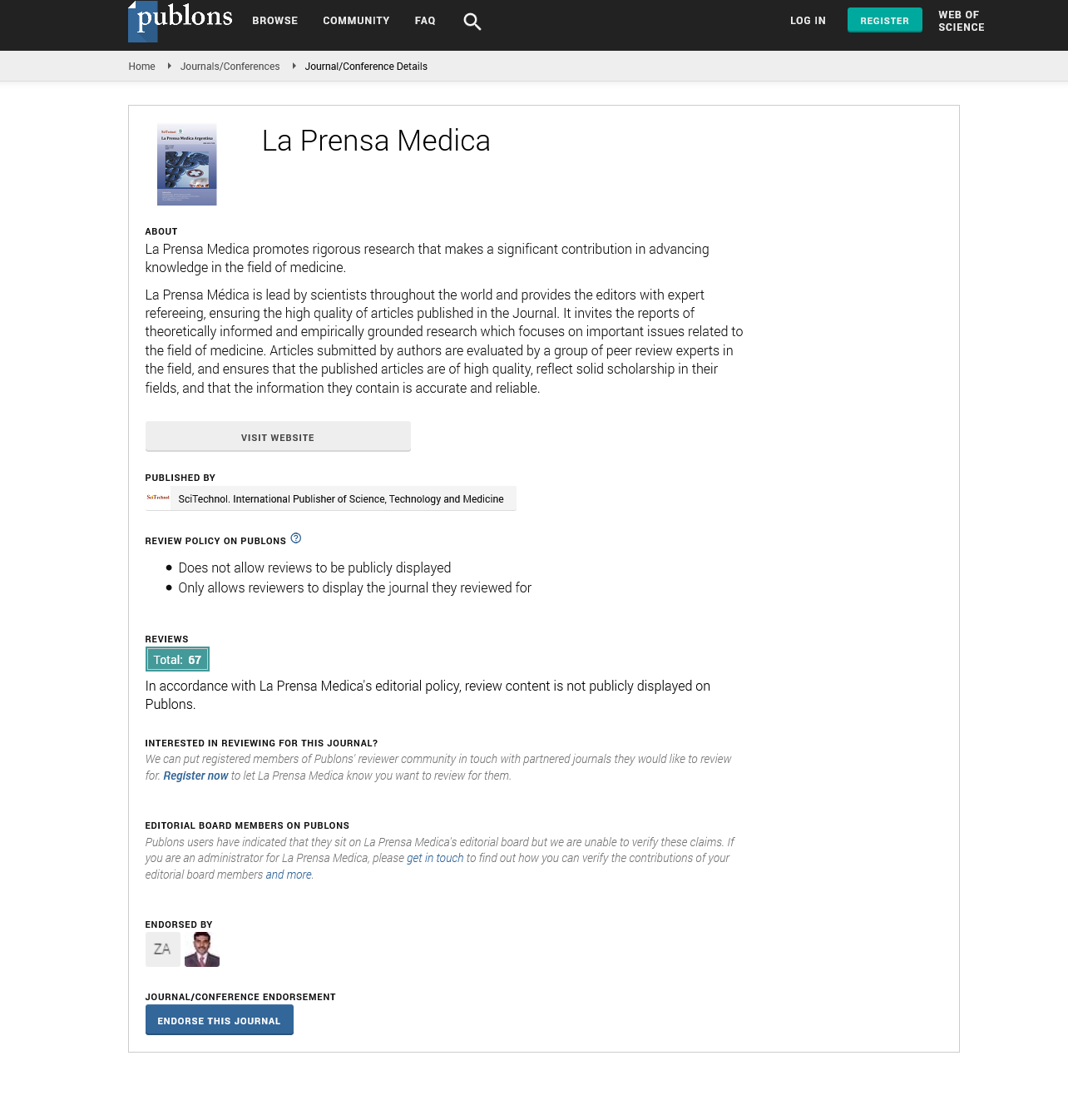Opinion Article, La Prensa Medica Vol: 109 Issue: 1
Neurobiology and Genetics: Unravelling the Intricate Connections
Nick Stillman*
1Department of Cell and Developmental Biology, University College London, United Kingdom
*Corresponding Author: Nick Stillman,
Department of Cell and Developmental
Biology, University College, London, United Kingdom
E-mail: nick58@hotmail.com
Received date: 28 March, 2023, Manuscript No. LPMA-23-100320;
Editor assigned date: 30 March, 2023, PreQC No. LPMA-23-100320 (PQ);
Reviewed date: 14 April, 2023, QC No. LPMA-23-100320;
Revised date: 21 April, 2023, Manuscript No. LPMA-23-100320 (R);
Published date: 28 April, 2023, DOI: 10.4172/0032-745X.1000146
Citation: Stillman N (2023) Neurobiology and Genetics: Unravelling the Intricate Connections. La Prensa Medica 109:1.
Description
Neurobiology and genetics play vital roles in shaping our understanding of the human brain and its intricate functions. The complex interplay between genetic factors and brain structure and function has captivated researchers and has significant implications for various aspects of human health and behavior. In this, all delve into the fascinating world of neurobiology and genetics and discuss their contributions to our understanding of the brain.
Neurobiology, also known as neuroscience, is the study of the nervous system, encompassing the structure, function, development, and disorders of the brain and spinal cord. Researchers in this field investigate the intricate network of neurons, neurotransmitters, and synaptic connections that underlie human cognition, emotion, and behavior. Through advanced imaging techniques, such as Functional Magnetic Resonance Imaging (FMRI) and Electroencephalography (EEG), scientists are able to visualize and study the dynamic activity patterns of the brain, shedding light on its complex workings.
Genetics refers to the study of genes, DNA, and heredity. Our genetic makeup, encoded in our DNA, contributes significantly to our physical characteristics, as well as our susceptibility to certain diseases and disorders. In the realm of neurobiology, genetics plays a vital role in shaping brain development, structure, and function. Genetic variations or mutations can influence neurotransmitter systems, neural circuitry, and the overall wiring of the brain, leading to differences in behavior, cognition, and vulnerability to neurological and psychiatric disorders.
Genetic research has provided valuable insights into various neurological and psychiatric disorders, including Alzheimer's disease, Parkinson's disease, schizophrenia, and autism spectrum disorder. Scientists have identified specific genes and genetic variants associated with an increased risk for these conditions, highlighting the complex interplay between genetic predisposition and environmental factors. For instance, studies have identified mutations in the Amyloid Precursor Protein (APP) gene in individuals with early-onset familial Alzheimer's disease, leading to the accumulation of amyloid plaques in the brain.
Neurobiology has revealed the brain's remarkable ability to adapt and change, known as neuroplasticity. Genetic factors influence the brain's capacity for plasticity, shaping our ability to learn, form memories, and recover from injuries. The interplay between genes and the environment determines the extent to which the brain can rewire itself, a process crucial for cognitive development and recovery from neurological damage. Researchers are exploring ways to enhance neuroplasticity to promote learning and rehabilitation in individuals with brain injuries or neurodevelopmental disorders.
Advancements in neurobiology and genetics hold prospects for understanding and treating neurological and psychiatric disorders. The emergence of precision medicine, which tailors treatments based on an individual's genetic profile, has the potential to revolutionize healthcare. Furthermore, ongoing research in gene editing technologies, such as CRISPR-Cas9, offers possibilities for correcting genetic mutations that contribute to neurodevelopmental and neurodegenerative disorders. By unravelling the intricate connections between neurobiology and genetics, we can gain deeper insights into the complexities of the human brain and pave the way for innovative approaches to improve brain health and well-being.
Neurobiology and genetics form the foundation of our understanding of the human brain. Through research in these fields, we have made significant strides in unravelling the mysteries of brain function and its links to genetics. Continued exploration in neurobiology and genetics promises to bring about transformative breakthroughs in neuroscience and mental health.
 Spanish
Spanish  Chinese
Chinese  Russian
Russian  German
German  French
French  Japanese
Japanese  Portuguese
Portuguese  Hindi
Hindi 

